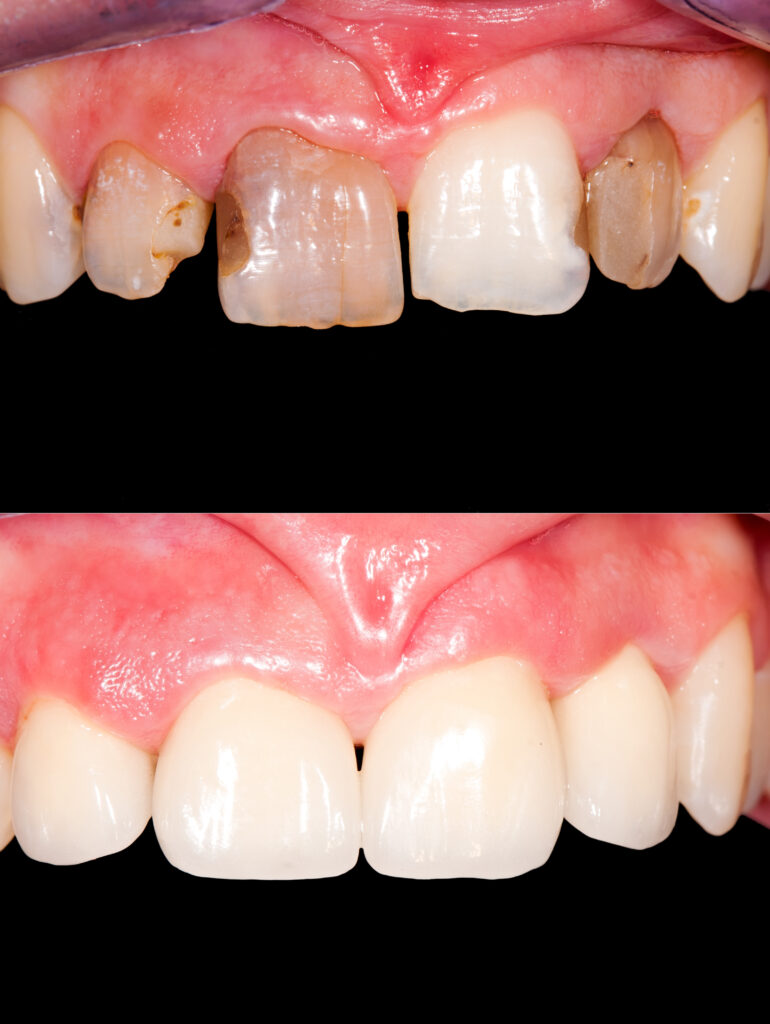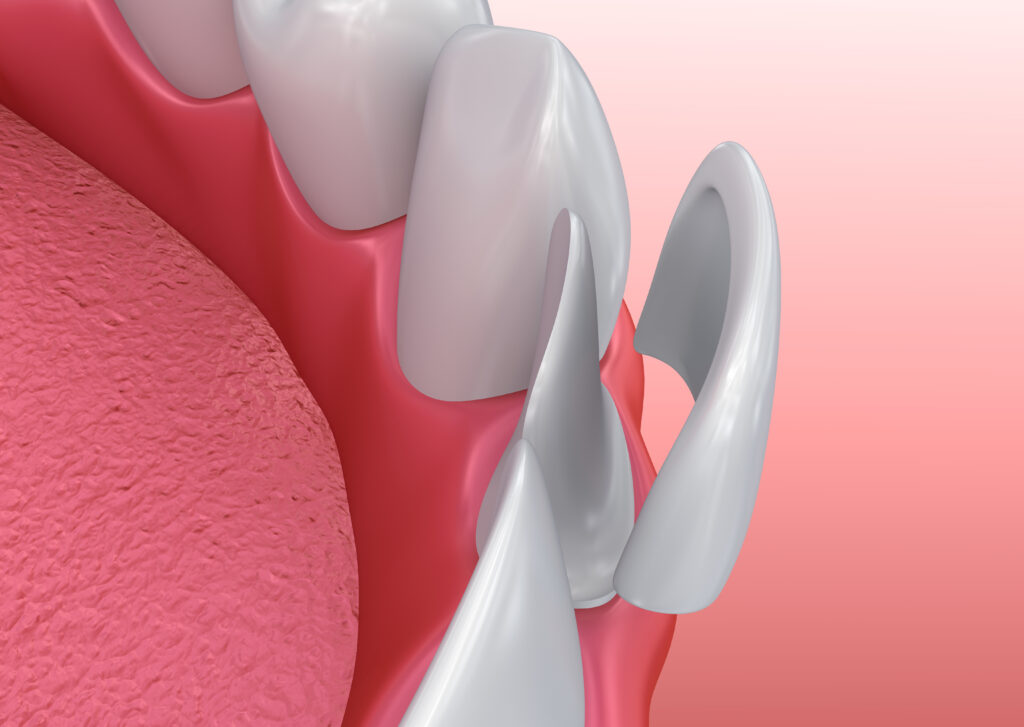What is Porcelain Dental Veneer?
Porcelain Veneer is a thin sheet of tooth-colored porcelain, and the dentist cements it to the outer visible portion of the tooth. Porcelain Veneers give the best result if you are looking to do a smile makeover. The dentist replaces the upper front teeth visible during talking and smiling with Dental Veneers. The Veneers are done on the front six to ten teeth on the upper jaw arch, and the number of teeth seen during smiling decides six, eight, or ten veneers.
Veneers Types

The Dentist can perform the procedure as one of the following three ways. Porcelain Veneers are the best and provide more natural-looking teeth.
1. Composite Veneers
Composite Veneers are composite filling material bonding done on the outer surface of the tooth. The disadvantage of composite veneers is less strength compared to that of Porcelain veneers.
2. No Preparation Direct Porcelain Veneers
The Veneers are placed directly on the tooth surface without any removal of tooth structure. The resulting Veneers can be thick and bulky. Direct Veneers can be used very effectively in cases with small teeth.
3. Indirect Porcelain Veneers
Indirect Veneers are done in two visits. In the first visit, the teeth are prepared, the impression is taken and temporary veneers are placed on the teeth. The Impression is sent to the laboratory for fabrication of veneers. Once veneers are fabricated, in the second visit, the veneers are permanently bonded to the teeth.
Affordable Dental Veneers
Dr. Utsav Desai has attended many Cosmetic Dentistry continuing education courses including courses in Porcelain Veneer procedure. He offers Porcelain Veneers for smile makeover to many of his patients.
You can take advantage of free consultation for Dental Veneers with Dr. Desai.
1. Cracked or fractured teeth
2. A gap between your teeth
3. Uneven edges
4. Internal Stains
5. Discoloration – yellow teeth
6. Small teeth
7. Malaligned Teeth – crooked teeth
The most significant advantage of Dental Veneers is that Veneers need much less removal of tooth structure is necessary than dental crowns. Less tooth structure removal means more tooth strength and less uncomfortable visit. The advantage of veneers versus crowns is that the dentist removes much less tooth material, and the procedure is generally less painful.
Porcelain veneers can bring back the patient’s self-esteem and self-confidence and can help them be successful in professional and personal life. Dental veneers can bring not only smile makeover but also bring great joy to your life.
Both composite and porcelain veneers can do smile makeovers; however, porcelain veneers have more strength and durability than composite veneers. Bonding composite veneers are not the first choice to transform your smile. Composite Veneers also and discolor over a few years. They can even fracture with a standard function requiring more appointments to repair them.
Veneers are done in sets of 2,4,6 ,8 or 10 teeth. Typically a veneer can cost from $1000 to $1500. Depending upon the number of teeth you are replacing, the cost of treatment can be from $3000 to $15000.
Veneers are thin sheets of porcelain cemented to the tooth structure. Dental veneers can increase the height and close gaps between teeth. They are designed by a dental laboratory to change color, size, and shape of the teeth. The dentist can transform your teeth into a beautiful dazzling smile with veneers.
Most insurances will cover veneers as a major procedure. Further, major dental procedures are typically covered with deductible and 20%-60% coinsurance. Some coverages may not include dental veneers. Every plan is different, and it is imperative to find out with your insurance whether a particular procedure is covered. Our office provides flexible payment
Veneers can last from 10 years to a lifetime. Porcelain Veneers have the best long term prognosis.
Veneers are prepared on the first visit under local anesthesia. Temporary Veneers are cemented, which are replaced with permanent veneers on the following visit.
